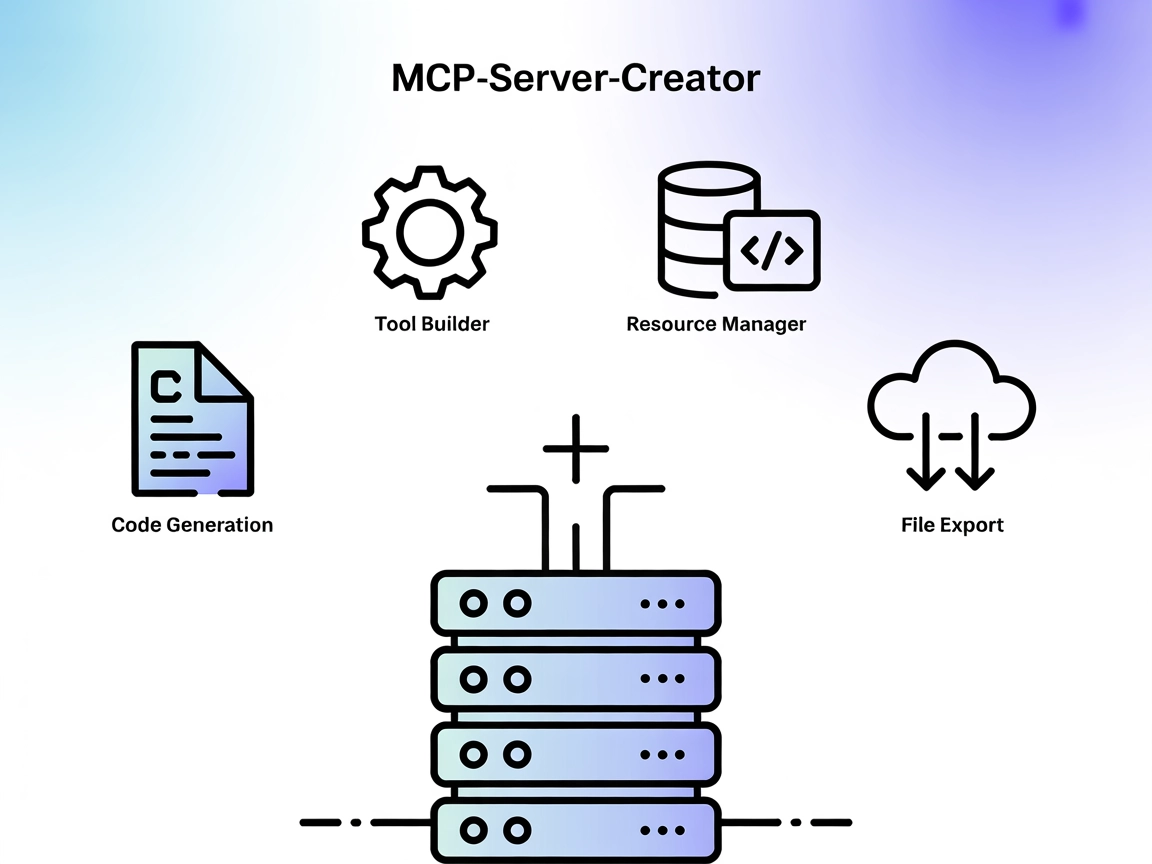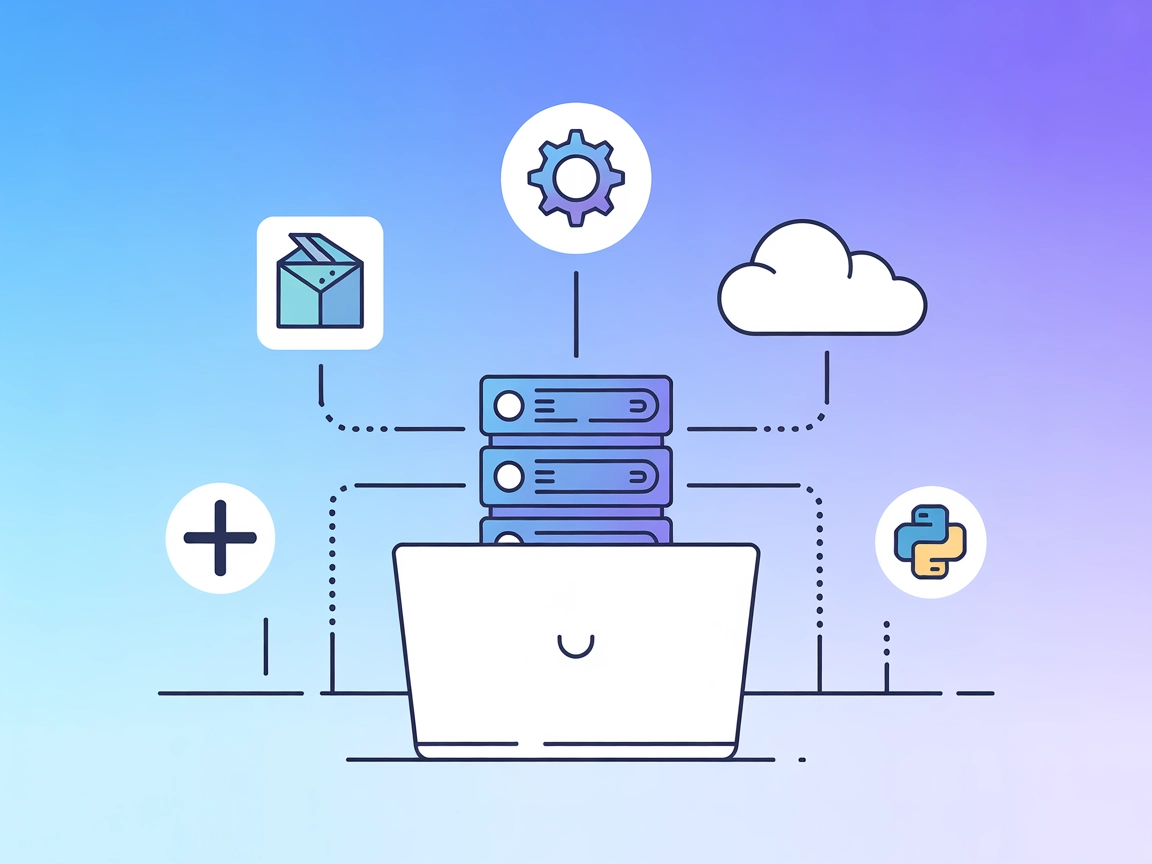
MCP-Server-Creator MCP Server
The MCP-Server-Creator is a meta-server that enables rapid creation and configuration of new Model Context Protocol (MCP) servers. With dynamic code generation,...

Automate the installation and management of MCP servers from npm or PyPi, expanding your AI assistant’s capabilities with a single command.
FlowHunt provides an additional security layer between your internal systems and AI tools, giving you granular control over which tools are accessible from your MCP servers. MCP servers hosted in our infrastructure can be seamlessly integrated with FlowHunt's chatbot as well as popular AI platforms like ChatGPT, Claude, and various AI editors.
The mcp-installer MCP Server is a specialized Model Context Protocol (MCP) server designed to streamline and automate the installation of other MCP servers. By acting as an installation manager, it allows AI assistants and users to easily deploy additional MCP servers from npm or PyPi repositories. This enhances the development workflow by enabling dynamic expansion of available AI tools and integrations without manual setup. With the mcp-installer, tasks such as fetching, installing, and configuring various MCP-compatible servers become seamless, allowing developers and AI agents to quickly access new capabilities, such as database queries, file management, or API interactions, simply by issuing installation commands. The server requires npx for Node.js-based servers and uv for Python-based servers, ensuring broad compatibility and flexibility.
No prompt templates are documented in the available files or README.
No resources are explicitly mentioned in the available files or README.
No tool implementations are documented or listed in the available files or README. The likely tool is “install MCP server,” but this is not explicitly described in the code or documentation.
npx for Node.js MCP servers and uv for Python MCP servers.{
"mcpServers": {
"mcp-installer": {
"command": "npx",
"args": ["@anaisbetts/mcp-installer@latest"]
}
}
}
npx, and uv are installed.{
"mcpServers": {
"mcp-installer": {
"command": "npx",
"args": ["@anaisbetts/mcp-installer@latest"]
}
}
}
npx, and uv are present on your system.{
"mcpServers": {
"mcp-installer": {
"command": "npx",
"args": ["@anaisbetts/mcp-installer@latest"]
}
}
}
npx, and uv.{
"mcpServers": {
"mcp-installer": {
"command": "npx",
"args": ["@anaisbetts/mcp-installer@latest"]
}
}
}
Securing API Keys:
Store API keys using environment variables for enhanced security. Example configuration:
{
"mcpServers": {
"mcp-installer": {
"command": "npx",
"args": ["@anaisbetts/mcp-installer@latest"],
"env": {
"MY_API_KEY": "${MY_API_KEY}"
},
"inputs": {
"apiKey": "${MY_API_KEY}"
}
}
}
}
Using MCP in FlowHunt
To integrate MCP servers into your FlowHunt workflow, start by adding the MCP component to your flow and connecting it to your AI agent:

Click on the MCP component to open the configuration panel. In the system MCP configuration section, insert your MCP server details using this JSON format:
{
"mcp-installer": {
"transport": "streamable_http",
"url": "https://yourmcpserver.example/pathtothemcp/url"
}
}
Once configured, the AI agent is now able to use this MCP as a tool with access to all its functions and capabilities. Remember to change “mcp-installer” to whatever the actual name of your MCP server is and replace the URL with your own MCP server URL.
| Section | Availability | Details/Notes |
|---|---|---|
| Overview | ✅ | |
| List of Prompts | ⛔ | No documented prompt templates found |
| List of Resources | ⛔ | No resources documented |
| List of Tools | ⛔ | No explicit tool list found |
| Securing API Keys | ✅ | Env variable example provided |
| Sampling Support (less important in evaluation) | ⛔ | Not mentioned |
The mcp-installer MCP server provides a valuable automation layer for installing other MCP servers, which is a unique and powerful capability. However, the lack of documentation on prompt templates, resources, and tools limits its transparency and usability for more advanced workflows. With clearer information and richer documentation, its usefulness would rate higher, but as it stands, it’s a strong utility for expanding MCP capabilities with minimal setup.
Rating: 6/10
| Has a LICENSE | ✅ (MIT) |
|---|---|
| Has at least one tool | ⛔ |
| Number of Forks | 157 |
| Number of Stars | 1.2k |
The mcp-installer is a specialized MCP server that automates the installation and configuration of other MCP servers from npm or PyPi repositories, making it easy to expand your AI assistant's capabilities on demand.
It streamlines deploying new MCP servers, rapidly expands AI features, manages multiple MCP servers centrally, simplifies onboarding for new users, and enables AI assistants to install new tools autonomously.
Store API keys as environment variables in your configuration. For example, set your key in the environment and reference it as ${MY_API_KEY} in the MCP server configuration to keep your credentials safe.
You need Node.js and npx for Node.js-based servers, and uv for Python-based servers. All clients (Windsurf, Claude, Cursor, Cline) require these before adding mcp-installer to their configuration.
The current documentation does not include prompt templates, explicit tool implementations, or resource lists. Its main function is to automate MCP server installation and management.
Install and configure new MCP servers with ease using mcp-installer. Streamline your AI workflow and unlock new integrations in minutes.

The MCP-Server-Creator is a meta-server that enables rapid creation and configuration of new Model Context Protocol (MCP) servers. With dynamic code generation,...

The Model Context Protocol (MCP) Server bridges AI assistants with external data sources, APIs, and services, enabling streamlined integration of complex workfl...

The Cursor MCP Installer is a streamlined Model Context Protocol (MCP) server for the Cursor IDE. It automates the installation and configuration of other MCP s...
Cookie Consent
We use cookies to enhance your browsing experience and analyze our traffic. See our privacy policy.